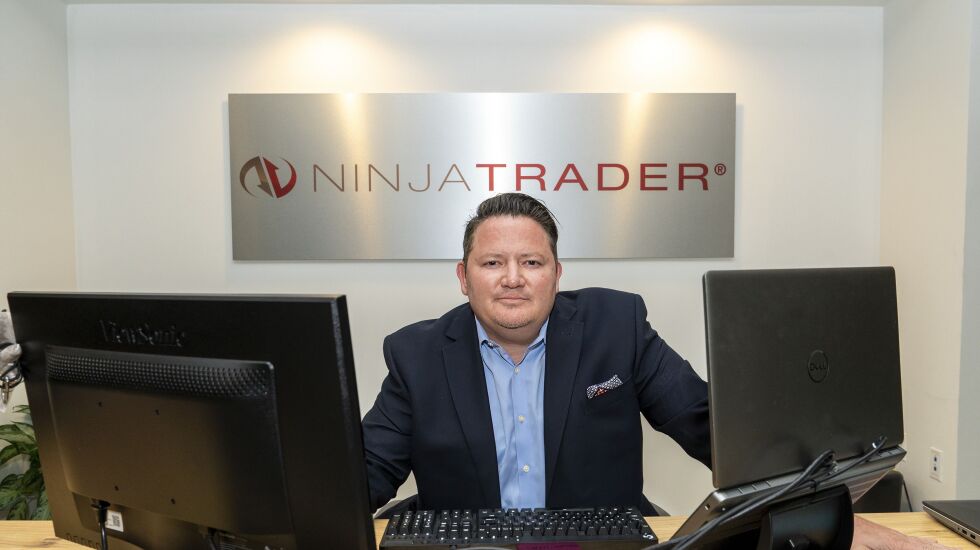
How confident are you in your sense of where the markets are headed?
Are you pretty good at guessing when some big company will surprise investors with boffo earnings and send stock indexes higher? Or are you prescient about Federal Reserve decisions or new inflation data that can make stocks tumble?
Well, step right up, chum. Chicago’s futures markets are giving you a chance to profit from prophecy.
CME Group, the Chicago-based owner of futures markets with a global reach, last week introduced a product line that opens a new phase of its business. They are called event contracts and are touted as a way to bring more everyday investors into the daily action.
Some will read that and say it means leading more lambs to slaughter. But that seems to be a hazard for our age; the same can be said for sports betting, now so ubiquitous the pro leagues all promote it.
The futures and options markets are bedrock Chicago industries, but they’ve always been a mystery to most people. Selling something you don’t actually own is a hard concept, and the complexity and terminology of so many contracts put people off. There have been many efforts to make futures and options more mainstream with mixed success.
With event contracts, CME Group is trying to simplify things. They are based on widely available data points such as the Standard & Poor’s 500, the Dow Jones Industrial Average, or the price of gold or oil. And they are yes-or-no propositions.
Do you think the index or price will close above a specified level at the end of the day? Each contract is worth $20. If you are right, you get $20. If you are wrong, your loss is what you paid for the contract. That payment can range from 25 cents to $19.75, depending on whether your bet looks far-fetched or like a sure thing.
CME Group is working with a handful of futures brokerages to get the word out. One of them is NinjaTrader Group, with offices at 222 N. LaSalle St. CEO Martin Franchi is enthusiastic about the contracts, so much so that his allied firm, Tradovate, has launched an app for them.
“Retail investors are finding their ways to futures,” he said. “The goal of CME and NinjaTrader was to create simple, safe and accessible products.”
Franchi said he’s not worried the contracts will result in unsuspecting newcomers getting fleeced by futures. He’s confident in the products’ design: The possible profit and loss are known before a person hits the trade button.
For this kind of trading, customers can’t risk more than what’s in their accounts. Commissions and clearing fees may apply, although Franchi said his firm is charging only a clearing fee of 9 cents per contract that’s passed on to the exchange.
Transaction fees are what CME Group gets from this venture. For Franchi’s firm, he said the value lies in broadening its base among active traders.
Franchi said the pros began using event contracts as soon as they were available a week ago. Then, new customers grew more active, he said. “Futures will be the next asset class to be mainstream,” he said.
Laurie Bischel, spokesperson for CME Group, said it believes the contracts will appeal to people who ordinarily haven’t traded in the futures markets.
“We have seen strong engagement early on from both the retail audience and our broker partners, and look forward to providing market users with innovative, lower-cost ways to access new markets,” she said.
Other event contracts cover natural gas, silver, copper and the euro-U.S. dollar exchange rate.
CME Group calls them event contracts, but they’ve also been called binary options — referring to the yes-or-no choice. But that name has fallen out of favor, probably because law enforcement has investigated numerous scams involving unlicensed dealers offering binary options. Market regulators in Europe have banned that form of trading. In the U.S., binary options are legal only through licensed brokerages and exchanges.
Elsewhere in town, Cboe Global Markets, which specializes in options in stocks and stock indexes, tried binary options in 2008 on the S&P 500 and its popular VIX measure of market volatility. Cboe dropped them a few years later after trading waned.
CME, which includes the old Chicago Mercantile Exchange and Chicago Board of Trade, hosts another form of “event” trading. It lists contracts tied to weather trends. If you’re wondering if it’s possible to trade on an exchange some other “event,” such as the U.S. presidential election, be aware that U.S. regulators ruled that out in 2012. For that, you need the bookies.
When it comes to futures, are you a bull or a bear? “Choose a side,” CME says in its marketing material, and it comes off as a dare. Just bet — err, invest — responsibly.







